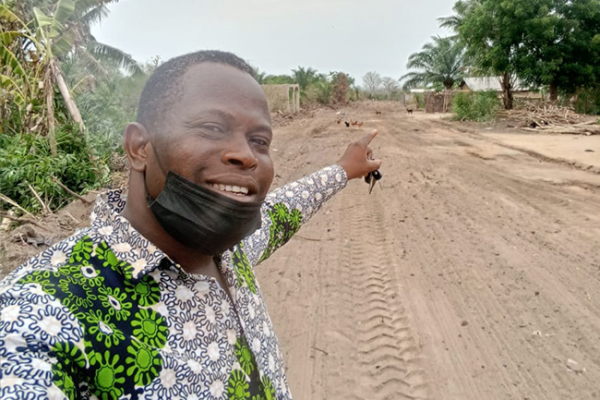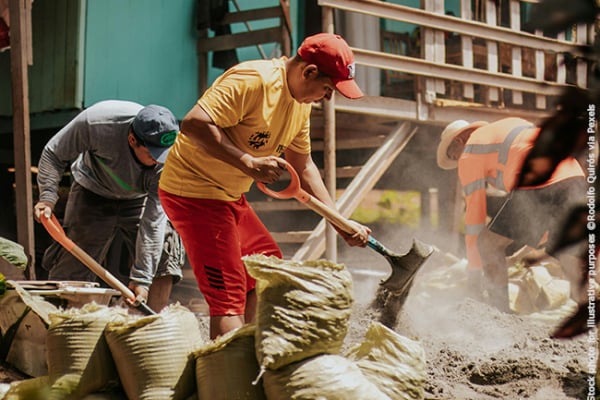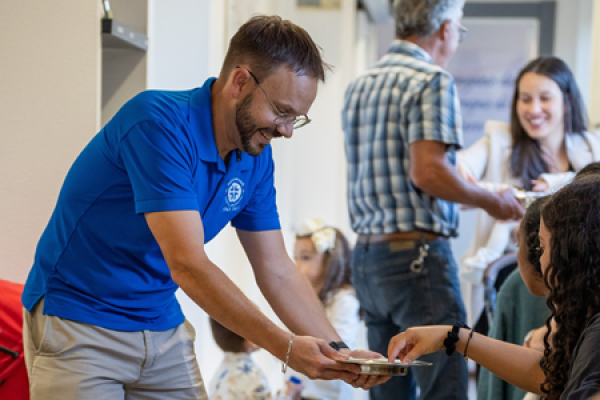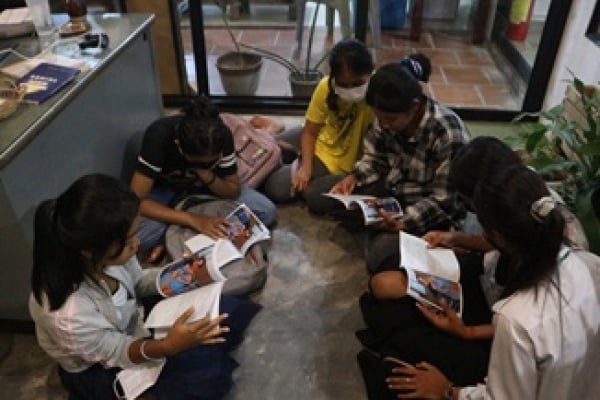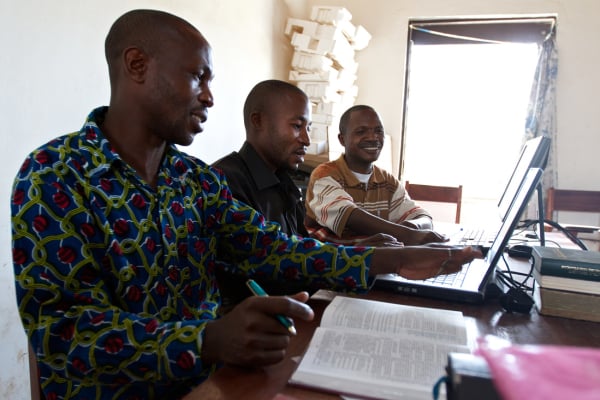Celebrating Translation
From Brazil
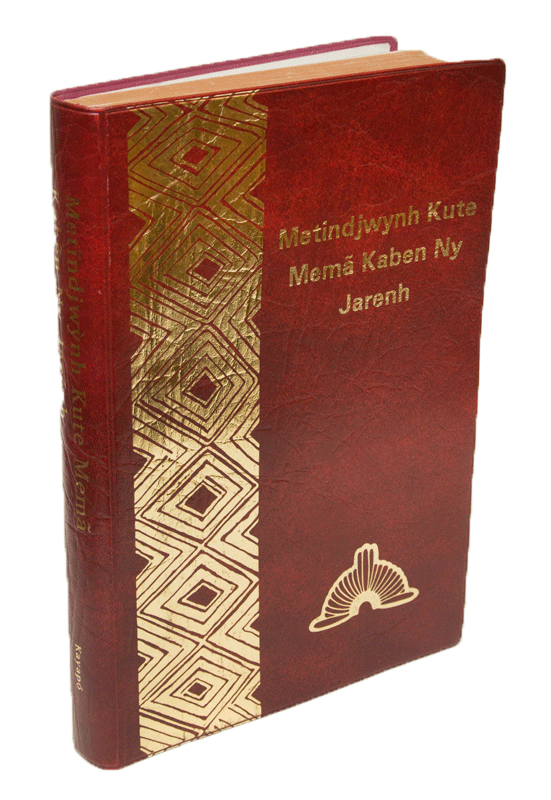
Kayapó
Translation for the Kayapó (KY-uh-PAW) Scriptures began in 1959. The New Testament was completed in 1996 and was dedicated in 1997 in Sấo Felix Do Xingú, Pará, Brazil.
Crossworld translator: Earl Trapp
After three martyrs, many workers and 70 years, the Kayapó church was finally established.
It wasn’t sheer determination or hard work, said Crossworld translator Earl. “It was simply the Word of God made understandable in their own language.”
With all of the obstacles, the Kayapó saw that God spoke their language. They had wanted to follow the [spirit] of the jungle with its rivers, flowers, wild pigs and monkeys. Instead, they became followers of the God of the universe because He spoke to them.
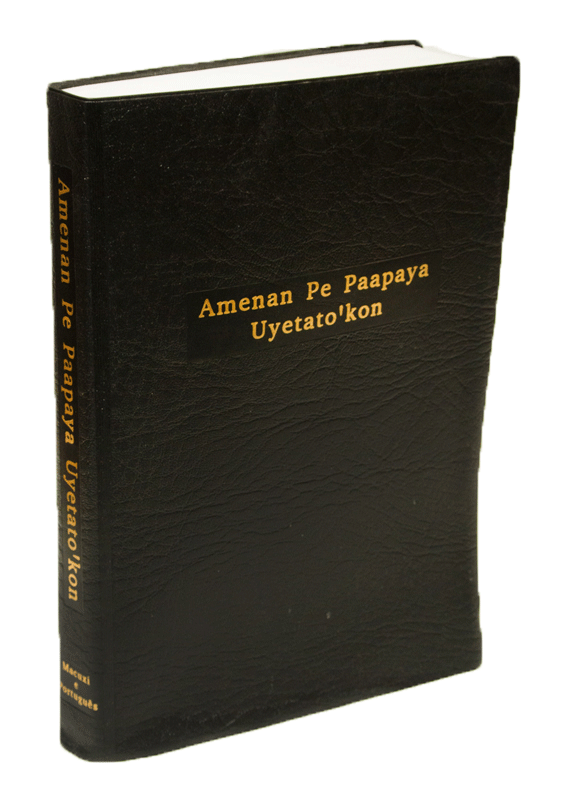
Macushi
Translation for the Macushi (muh-KU-shee) Scriptures began around 1970. The New Testament was printed in 1997, and an e-version is in progress.
Crossworld translators: Pat Foster, Miriam Abbott
Sanumá
Translation for the Sanumá (SAH-nu-MAH) Scriptures began around 1960. The New Testament was dedicated in Auaris, Brazil, in November 2007.Crossworld translator: Don Borgman
Sanumá believers eagerly anticipate the week-long Bible Study Conference held three times a year. “I would never walk the four hours from my village to the conference if it were not to receive teaching on the Word of God,” said one elderly woman.
Recently some local believers were told not to meet anymore. The spiritual leader of the village refused, quoting 1 Timothy 4:11, 13: “Prescribe and teach these things … give attention to the public reading of Scripture, to exhortation and teaching.” The opposing leaders had nothing to say in response. And the church services go on.
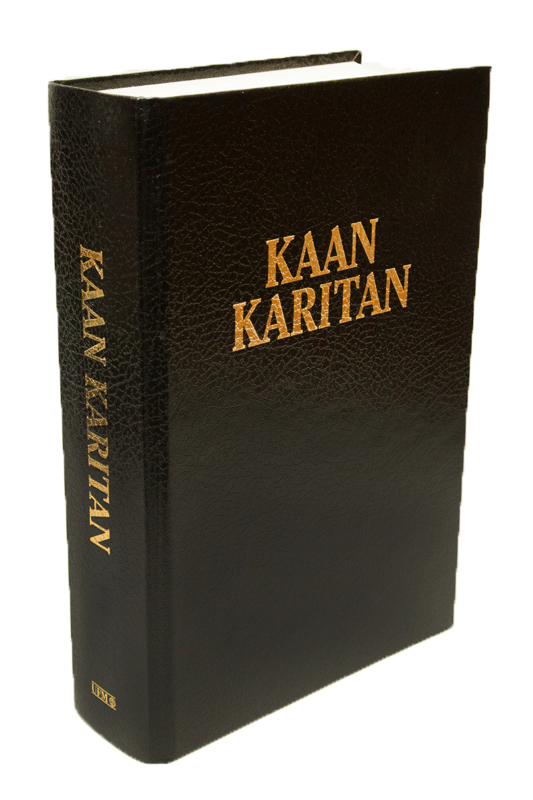
Wai Wai
Translation for the Wai Wai (WY WY) Bible began in 1955. The New Testament was printed in 1984, and the entire Bible was printed in 2001. An e-version is in progress.
Crossworld translator: Bob Hawkins
When the New Testament arrived in 1984, the people were thrilled. But something didn’t make sense.
“Show me your English Bible,” one man said to Crossworld translator Bob. So Bob held up his book.
“Show me what part of the Bible I’m holding,” he said, and Bob showed him the New Testament.
“What’s the rest of it?”
“That’s the Old Testament,” Bob replied. “The writings of Moses and David and the prophets.”
“That’s more than what we have. Is it God’s Word?”
“Yes.”
“Is it as much God’s Word as what I’m holding?”
When Bob nodded yes, the man immediately replied, “We want it. Go get started!”
In Progress
Two translations are currently in progress. A Crossworld worker wrote this about the translation process:
“How can you say, ‘My sheep hear My voice’ to people who have no idea what sheep are? [The language] has no generic word for carry, but instead says carry on your head or carry in your mouth. How do you translate ‘I carried you on eagles’ wings’ and ‘Carry one another’s burdens’?
“I write a rough draft and then ask [the village leaders] to help me ‘straighten out the talk.’ I am careful to be sure they know it’s my talk and not God’s talk that we are straightening out.
“After we have written the translation, it must be back translated (translated back into a familiar language) and reviewed for omissions, additions and changes from the original meaning. Corrections are made, and eventually, [God’s Word] is put into the hands of the people.”
From Congo
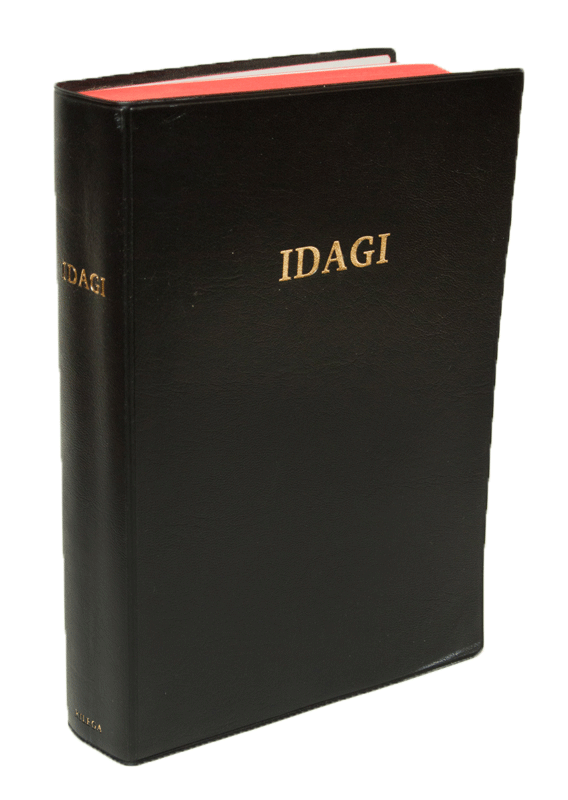
Kilega
The original Kilega (kih-LAY-guh) New Testament was printed in 1954 by the British and Foreign Bible Society. After drafts of the Old Testament translation were lost during the Congo wars in the 1960s, both translations were re-worked. A draft of the entire Bible was completed in 1998, but another war put the work on hold for two years. The first Kilega Bibles arrived in 2003.
Crossworld translators: Maxine Gordon, Jim and Louise Lindquist
“Tears of joy and gratitude welled up within all of us who had been eagerly awaiting this precious book,” said Crossworld translator Louise.
“We praise God for His faithfulness, help, guidance, protection and complete provision in seeing us through this project. To the [people], the Kilega Bible is like a treasure chest containing many jewels. To all of us, the Kilega Bible is a dream come true.”
From Guyana
Wapishana
Translation for the Wapishana (WAH-pih-SHAH-nah) Scriptures began in the late 1960s. The New Testament was printed in 2013 and dedicated Nov. 2, 2013.Crossworld translator: Fran Tracy
Josie and Violet walked into Crossworld translator Fran’s yard, hammocks and food in hand.
“We’ve come to learn to read!” Josie said. “I didn’t get to go to school, so I’ve never learned. We’ll stay until we can read and study God’s Word.”
Fran stood shocked at the couple she had never met, but pleased at their eagerness to learn the Bible.
Several weeks later, they left Fran’s house, able to read God’s words for themselves.
Recently Josie taught a Wapishana reading class in his own village — passing on the ability and enthusiasm to study God’s Word.
From Papua
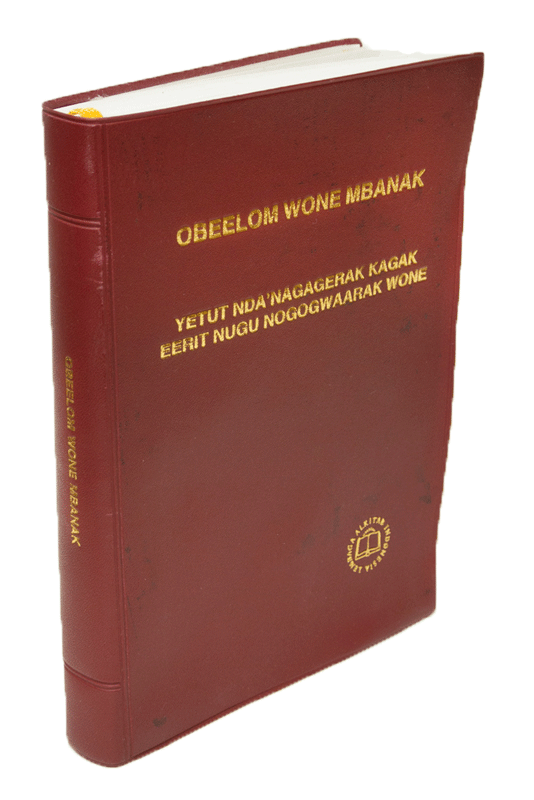
Dani
Translation for the Dani (DAH-nee) Scriptures began in 1963. The Bible was printed in 2009, and a complete Bible commentary is in progress.
Crossworld translators: Dave Scovill, Leon Dillinger
“I just cannot believe that God is speaking to me through my own language,” said a Dani member of the translation checking team. “I have spoken Indonesian since I was in grade school. I am currently ... learning and speaking English. I read my Bible in Indonesian and I read my Bible in English, but I have never felt the moving of God’s Spirit in my heart like I have felt it the last several days reading and pondering His Word in my own Dani language. Thank you, my fathers, for making it available to us. God’s Word, in my own tongue, speaks louder to me than any of the other languages I have learned.”
Not long after the Bibles were printed, Crossworld translator Dave took a seat on the floor among the nearly 1,000 women who had gathered to hear Bible teaching. As the speaker announced his text, the women scrambled to pull their Dani Bibles out of their net bags.
He glanced around at their open Bibles and saw blue, red, green and yellow highlights of verses they were reading and studying.
Tears formed in his eyes. Not only did they have God’s Word in their own Dani language, but that they were reading and applying it to their lives.
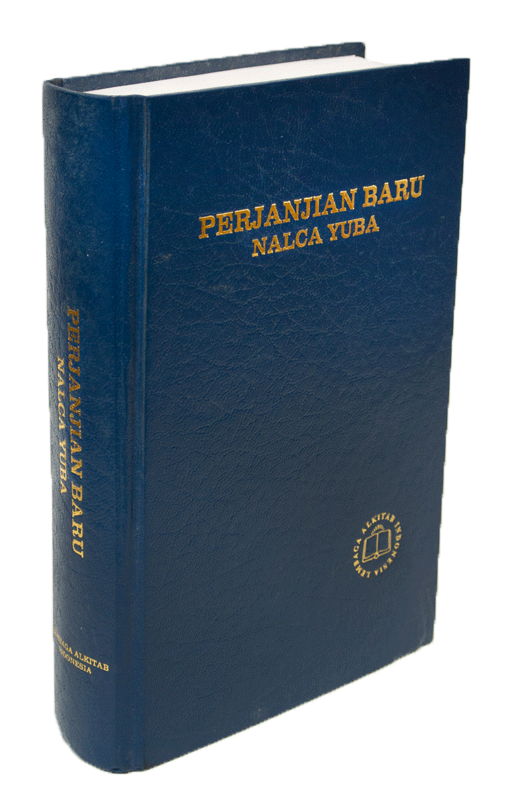
Nalja
Translation for the Nalja (NAHL-juh) Scriptures began in 1976. The New Testament was completed in 2000, and the Nalja Old Testament is in progress.
Crossworld translator: Roger and Suzanne Doriot
“Look, that one guy has Yunus’s axe!” screamed a Nalja man from the back seat of the helicopter. “They’ve killed him!”
Crossworld translator Roger and a few Nalja men had flown to a new village to meet up with Yunus and together share God’s Word with the people. But when Yunus wasn’t there, fear set in. After all, inter-village violence was common.
Roger and the others got out and began talking with the people, but they couldn’t decide if the villagers were friendly.
“Should we stay?” Roger and the Nalja men asked each other.
“We came out here to give these people God’s Word,” one of the Nalja men said. “If they want to kill us, they’ll just have to kill us. But we’ll stay and attempt to give them God’s Word.”
So the Nalja men stayed to share the gospel with their own people. And Yunus? He showed up three days later in another village.
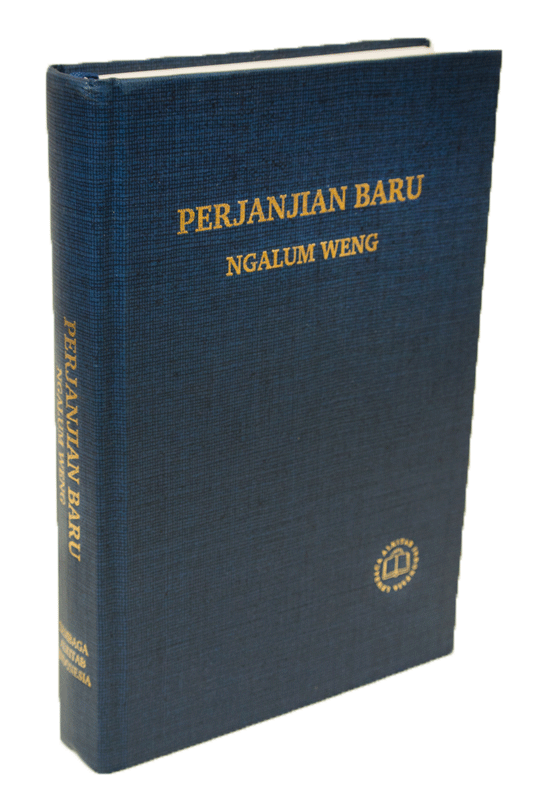
Ngalum
Translation for the Ngalum (NAH-LUME) Scriptures began in 1978. The New Testament was dedicated in February 2000 at Kiwi, Papua.
Crossworld translator: Jack Hook
In Progress: Duvle
Translation for the Duvle (DUVE-lay) Bible began in 1980.
Crossworld translator: Charlotte Murdoch
For translators, the fruit of their work is not merely the finished book. A real reward is partnering with national believers for hours and hours of discipleship as they read and study the Bible together.
When Crossworld translator Charlotte acknowledged she couldn’t do the work of translation alone, she began to invest in three young men to help in the process.
“I’m concentrating on tutoring them in the next few years,” Charlotte said. Then, when she is gone, these men can continue the work and disciple their own people with God’s Word as Charlotte has discipled them.
“In the long run, the process is as important as the results,” Charlotte said. “Long ago I saw it as an [opportunity for] discipling.”
From Suriname
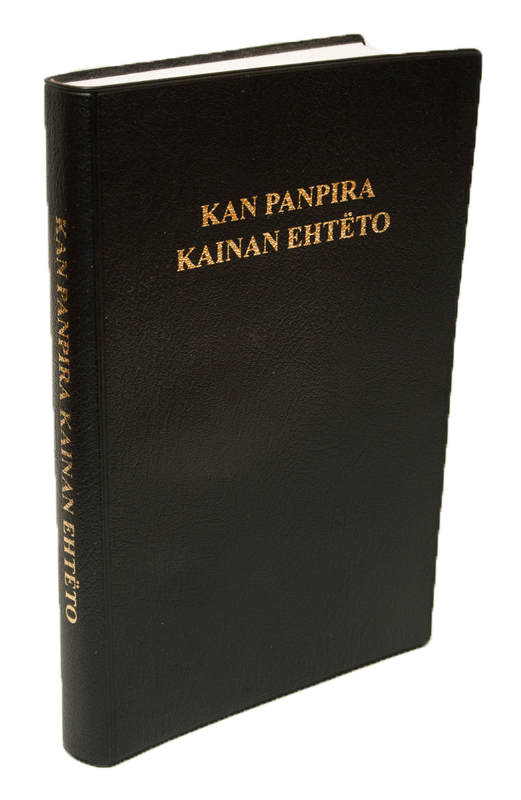
Trio
Translation for the Trio (TREE-oh) New Testament began in the early 1960s and was completed in 1979.
Crossworld translator: Claude Leavitt
“When [Crossworld translator] Claude came to Suriname, we schemed to kill him,” said Trio chief Asonga. “But Claude’s big heart and obvious love won [us] over. As a result of him living right in our midst with his family, we Trios learned to love God and love each other.”
.png)

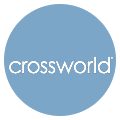 By Crossworld
By Crossworld